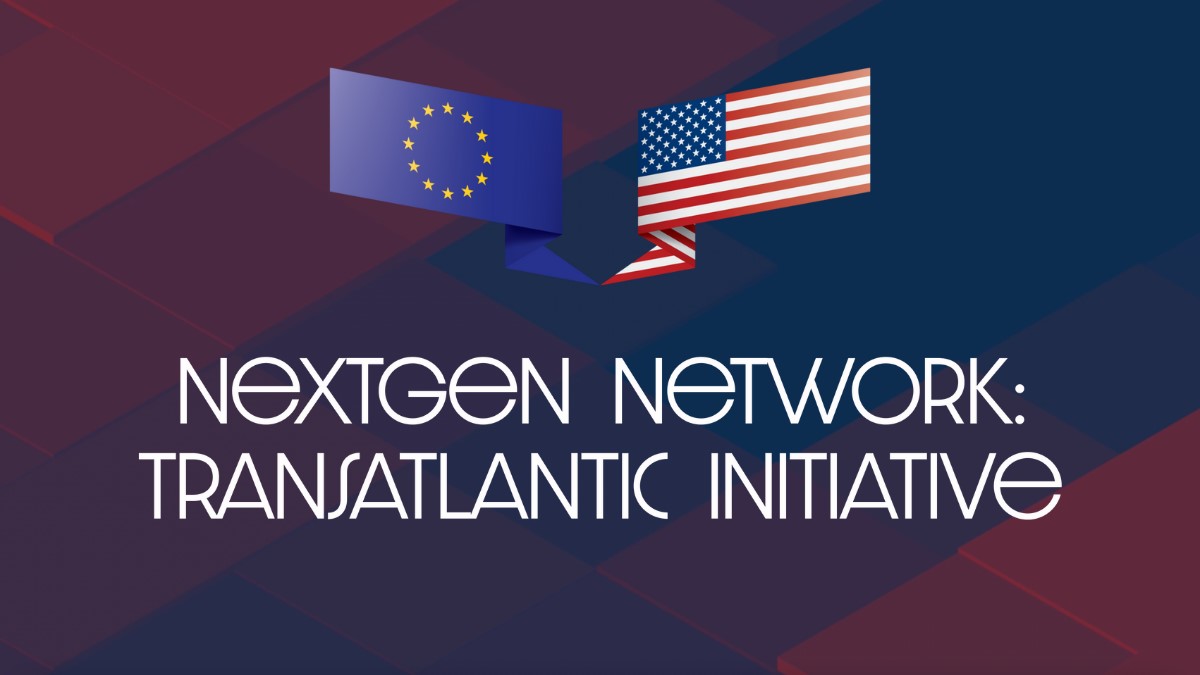The transatlantic partnership has undoubtedly undergone many stressors over the last few years. However, the coming months offer an opportunity to revitalize and strengthen the relationship in order to address common concerns, from challenges to democracy to the impacts of climate change and the digital transformation of our economies and societies. The voices of the next generation of leaders will be instrumental and should be at the forefront of finding these solutions.
The newly launched NextGen Network report, Make it Durable: Renewing the Transatlantic Relationship, seeks to elevate the perspectives and ideas of young people from the U.S. and Europe. The report includes recommendations for a prosperous transatlantic relationship and democratic world, with a focus on four key areas identified by the group: strengthening democracy; building economic opportunity; increasing sustainability efforts; and focusing on the development of technology. In their report, NextGen members outline their perspectives and provide actionable policy recommendations for today’s leaders.
The selection of NextGen members was undertaken carefully to ensure a broad range and representation of sectors, backgrounds, political views and geographic locations. This was part of the effort to ensure the workshops, conversations and the report itself all foster a current representation and conversation of U.S.-EU perspectives. As NextGen member Marisa DeAngelis, vice president for BlackRock, points out: “The transatlantic relationship needs to reflect Americans and Europeans of today.”
The workshops brought together NextGen members over several sessions for a dialogue, and to meet with current leading figures of the transatlantic relationship – Federica Mogherini, Madeleine Albright and Mircea Geoană – to ensure an intergenerational conversation on this important relationship. Those discussions led to some key observations important to note for policymakers on both sides of the Atlantic. First, the transatlantic relationship remains the most important bilateral relationship for both the United States and the European Union. The group believed bilateral cooperation was even more important than multilateral cooperation for tackling shared challenges. Participants were concerned about democratic backsliding in Europe and the United States and believes there is a special role for the transatlantic relationship to uphold democratic values. Looking ahead, the NextGen members expect that the future of the relationship will be defined by technological leadership and the ability of the EU-U.S. to assume a leadership role in addressing global sustainability concerns.
Advancing the conversation
The NextGen Network report was created through NextGen member engagement in surveys, virtual workshops, breakout groups and moderated discussions on the current state and possible future for the transatlantic relationship. Our survey of this year’s NextGen cohort found that the next generation considers the three shared values of democracy, economic opportunity and national security as the most important to the relationship. When it came to the most important issues, climate change, security and technology ranked as the top three.
This report adds to the discussion about how democracies can adapt to overcome old and new threats. NextGen members noted that there are already actions underway to address the challenges noted in the report such as the recent EU Action Plan on Human Rights and Democracy 2020-2024, efforts from NGOs, think tanks and civil society undertaking extensive research on building inclusive economic opportunities, the creation of the Interagency Working Group and its economic revitalization for communities impacted by coal mine and power plant closures, and the most recent collaborative effort between the EU and the U.S. on the Trade and Technology Council. The hope of the NextGen Network is that their perceptions and policy suggestions serve to catalyze further collaborative efforts and real change.
Two other players that will be key to the maintenance and growth of the relationship are business and civil society. NextGen member Zach Pagovski, senior manager of Institutional Partnerships for the Center for Civilians in Conflict, explains: “Civil society will now play a crucial role in repairing and reinvigorating the transatlantic bond, thus fortifying the values that we hold dear: democracy, liberalism and cooperation.” Beatriz Camacho Ávila, Manager for Southern Europe for the European Institute of Innovation and Technology, adds that in particular regarding the promotion of sustainability, “the private sector should be viewed as a partner, not an […] opponent.”
We hope that this NextGen Network report, and accompanying ideas and perspectives, will shape the future of the transatlantic relationship as it strives for a more democratic, sustainable and economically prosperous world.
About the NextGen Network
In collaboration with Microsoft, the Aspen Institute’s International Partners launched the NextGen Network in 2018 to serve as a feedback mechanism on the informed perspectives of millennials and Generation Z. This is the Network’s second initiative, with a diverse 25-person cohort from across the United States and Europe, focusing on the transatlantic relationship.
Learn more about the NextGen Network, read the full report and watch the launch event below.

